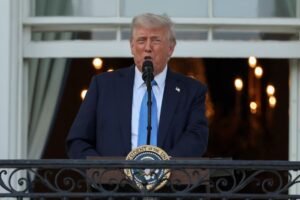The Socio-Economic Rights and Accountability Project (SERAP) has filed a lawsuit against the Central Bank of Nigeria (CBN), challenging its failure to publicly disclose details of direct payments to the 774 local government councils across the country, including those in Rivers State.
Filed last Friday at the Federal High Court in Lagos, the suit (FHC/L/MSC/521/2025) seeks to compel the apex bank to reveal whether it has complied with the Supreme Court’s landmark July 2024 judgement. That ruling mandated that allocations from the Federation Account be paid directly to democratically elected local councils—bypassing state governors.
SERAP insists that such transparency is essential for enforcing the Supreme Court’s ruling, ensuring accountability, and preventing governors from mismanaging funds meant for grassroots development. The group argues that the CBN has a constitutional and statutory obligation to uphold the rule of law and protect the financial integrity of the local government tier.

“State governors are starving local governments of funds despite clear legal directives. This not only violates the Constitution but also risks destroying the local government system,” SERAP stated in its application.
The case also spotlights the recurring issue of state interference in federal allocations. Former President Muhammadu Buhari once exposed a pattern where local council chairmen were forced to sign for inflated amounts, with large sums siphoned before reaching the councils.
With Nigeria’s 774 councils reportedly opening CBN accounts to receive direct transfers, SERAP’s action aims to verify whether these funds are being properly disbursed and accounted for.
The advocacy group is leaning on the Freedom of Information Act, the Nigerian Constitution, and international human rights treaties to support its call for disclosure.
As of March 2025, the Federation Account Allocation Committee (FAAC) disbursed N1.578 trillion to the three tiers of government. SERAP is demanding full transparency on how much of this reached the local governments directly.
This legal battle could set a new precedent for financial transparency and the enforcement of court orders in Nigeria—particularly as the nation gears up for the 2027 general elections.










